‘Lucky’ Fr Leon ready for next adventure
People
A keen golfer and snow skier, Fr Leon Czechowicz was an active 60 year old leading a busy life as parish priest of Elizabeth when he was diagnosed with breast cancer.
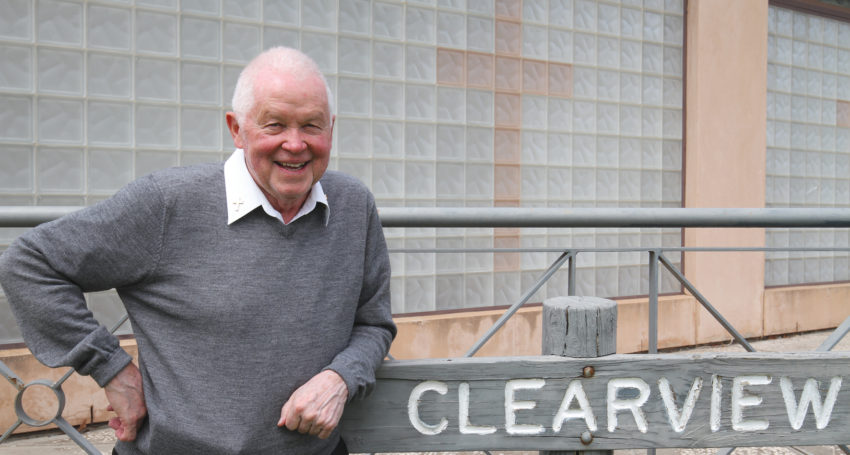
He’d been aware of a small lump for a long time but thought it was nothing until he was carrying some books under his arm one day in 2004 and felt a “bit sore” afterwards.
He was shocked to learn he had stage three breast cancer and that it was already starting to “send out little messengers”.
A full mastectomy was followed by an intense cycle of chemotherapy and radiotherapy, during which he continued to work and say Mass in the “good weeks” but “lay on my bed with a bucket at my side” at other times.
Advertisement
After his treatment ended, six monthly medical checks for the first 10 years drew out to yearly. By the time he reached the clergy retirement age of 75 he was asked to continue for another year or two in Clearview/Kilburn parish where he has served for the past 14 years.
“I was one of the lucky ones,” Fr Leon told The Southern Cross.
When he retires on April 16 just short of 77, the affable priest is looking forward to playing more golf and continuing his travels as a chaplain on cruise ships but will also be very happy to act as a ‘supply’ priest for parishes in Adelaide and regional areas.
Looking back on his 53 years as a priest, Fr Leon said he had no regrets but admitted there were times when “the going was a little bit tough”.
“But there are forces at play which can help you, I’ve been lucky in that regard,” he said.
“For example, when I started out as a young priest 53 years ago I started in Elizabeth with a parish priest called Fr David Abfalter. He was only there with me for one year and yet his influence was something that made an impact on my life.
“As a young priest you are sort of in a wave of adulation, there’s an aura about it, but he was very down to earth in a very good way because he could show the serious elements of life and spirituality but at the same time was able to have a sense of humour, a bit of fun.”
A Polish refugee, Fr Leon came to Australia as a six year old with his parents and two brothers. His parents had fled Russian-occupied eastern Poland during World War II and moved to Lithuania, where Leon was born, before fleeing the Russians again to Italy.
Fr Leon grew up in migrant camps including Bonegilla in Victoria and a converted American bomber base at Gawler where his father, who had been a doctor in Europe, worked as a storeman until he saved enough money to buy a block of land.
“There were 1500 of us housed in that complex,” he recalled.
After two years his father put a deposit on a block of land at Gawler – the Polish families would form “little enclaves of four or five of them and pool their money” so that gradually each family was able to build a house. They also used tradesmen from the camp who weren’t allowed to work in their particular trade.
Advertisement
His father eventually gained permanent work in the railways where he remained until his death from a heart attack at the age of 54.
Leon and his two brothers won scholarships to Christian Brothers College and spent one hour 20 minutes each way on the steam train each day. His older and younger brothers both went on to be doctors, like their father.
At 16 Leon completed Leaving and went to the seminary at Stradbroke where he continued his studies before being ordained in 1967, the year his dad died. His second funeral was his father’s.
He served in Elizabeth and Dulwich parishes and from 1972-1984 he was coordinator of religious education in Catholic schools while based at Glenelg.
His first experience of a country parish was Birdwood, where he spent six “wonderful” years, followed by a short stint at Salisbury and a sabbatical year in Rome. On his return in 1991, he had five very busy and fulfilling years as parish priest of Hectorville before moving to the close-knit Virginia parish and finally returning to Elizabeth, this time as parish priest. Fr Leon was also a chaplain to the Army Reserve for 30 years, an experience he described as “truly rewarding”.
Reflecting on his time at Clearview/Kilburn, Fr Leon said it was a “very good parish for me”. He gained a lot from long-time pastoral associate Pat Hehir when he first went there. “She was terrific,” he said. “And I also learnt about trying to create a little bit of harmony between two parishes that had been joined together so as to make it one viable parish.”
He praised the work of Iris Daly, parish secretary, particularly for her “tremendous influence” in inspiring others to get behind the annual Anawim fundraising dinner, of which Fr Leon was a regular ‘performer’.
At Kilburn, the parish’s support of refugees through the Mercy House of Welcome had been a key focus, with St Brigid’s School principal Trish O’Toole the “real heart and soul of it”. Coincidentally, Trish will retire at exactly the same time as Fr Leon.
Fr Leon said the cooperation between the parish and the two schools, St Brigid’s and St Gabriel’s, had been “outstanding”.
“When I first came here there was always a good spirit and luckily it’s continued right up until now.
“The principals and senior staff are really committed to the parish…we have a very good Sunday school so we are lucky in that regard.”
As for the future, Fr Leon expressed “sadness” that “Church life is changing”.
“The secular world has crept in far more to our Church than was the case in the past and therefore, sadly in my opinion, some of the kind of attitudes towards sacredness have altered.
“People are still probably just as religious but they don’t view sacredness as we used to, deep down they may have those religious senses but as for ritual and actual expressions of faith they have taken on a different style.
“Those who are fervent in their faith can’t have as much influence as used to be the case, it’s hard to pinpoint, it’s just a different world out there.”
While conceding that the clerical sex abuse crisis had played its part, he said “the problem is that it’s made to look as if all priests are in some way tainted with that element of abuse and so for those who don’t have contact with the Church that’s all they see”.



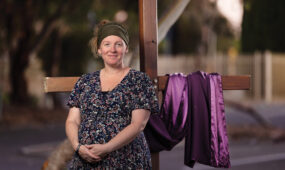
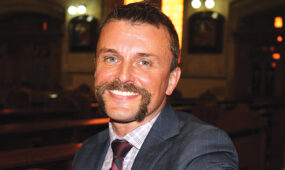
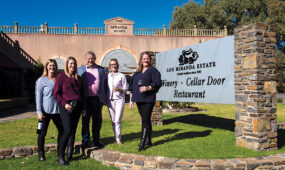
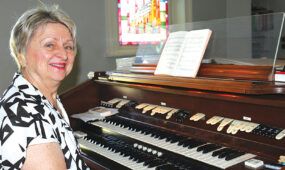

Comments
Show comments Hide comments